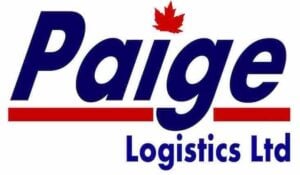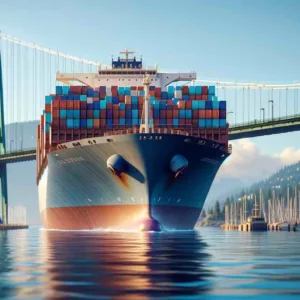Heavy Haul Services Demystified: A Comprehensive Breakdown
Heavy haul transportation services is a vital part of many industries, including construction, manufacturing, and mining.
But when it comes time to move that equipment from one job site to another or to a new location entirely, things can quickly get complicated. This is where heavy haul flat deck trucking comes in.
What exactly is heavy machinery transportation and what do you need to know to make sure your equipment gets where it needs to go safely and efficiently?
In this article, we’ll take a deep dive into the world of heavy haul trucking services and provide you with everything you need to know to make your next heavy haul move a success.
Ocean Freight Services China to Canada
Heavy haul refers to the process of moving large and heavy equipment and machinery, such as construction equipment, industrial machinery, and manufacturing equipment, from one location to another.
The most common types of transportation for heavy machinery are road, rail, sea, and air transportation. Each type has its own set of pros and cons and may be more or less suitable depending on the size and weight of the machinery, the distance of the move, and the location of the equipment.
Heavy machinery transportation is regulated at both the federal and state levels. This includes obtaining the necessary permits and insurance, compliance with safety and environmental standards, and compliance with weight and size restrictions on the roads.
When choosing a transportation company, it’s important to research their experience and reputation, as well as their equipment and resources. It is also important to ask for references and case studies to see their previous work history. Also check for their safety record and customer service and communication.
Hauling and rigging refer to the process of safely loading and securing the heavy machinery onto a truck or trailer for transport. This requires specialized equipment, such as flatbed trucks, trailers, and cranes, as well as skilled operators who are trained in the proper rigging and securement techniques.
Safety is of the utmost importance when transporting heavy machinery, and even small mistakes can result in serious accidents and damage to the machinery. It is important to ensure that the transportation company and their equipment are in compliance with all safety regulations and that the machinery is properly rigged and secured during transport.
It’s important to give yourself plenty of lead time when planning a heavy haul transportation move. The more lead time you have, the more options you’ll have when it comes to choosing a transportation company and the more time you’ll have to plan for any potential complications.
It’s essential to ensure that the machinery is in good working condition and that any necessary repairs or maintenance are taken care of before the move. This will help to minimize the risk of damage during transport and ensure that the machinery is ready to go once it reaches its destination.
It’s important to communicate effectively with the heavy haul transportation company throughout the process. This includes providing clear and detailed information about the machinery and its dimensions, as well as any special requirements or considerations. It’s also important to work with the transportation company to establish a clear and detailed plan for the transport, including any necessary permits, insurance, and compliance with safety and environmental standards.
First things first, let’s define exactly what we mean by heavy haul transport?
In simple terms, it’s performed by a specialized trucking company. The process of moving large and heavy equipment and machinery, such as construction equipment, industrial machinery, and manufacturing equipment, from one location to another.
This type of transportation requires specialized equipment and trained personnel, as well as a thorough understanding of the regulations and safety guidelines that apply.
When faced with the challenge of transporting heavy machinery, understanding your options is crucial. The primary modes of transport include road, rail, sea, and air, each with its unique advantages and limitations. The choice among these depends on the machinery’s size and weight, the journey’s length, and the starting and ending locations.
Road transport often emerges as the most accessible and cost-effective method. However, its feasibility is constrained by the machinery’s dimensions and mass. It’s vital to partner with a transport provider that possesses the requisite permits and insurance for oversized loads and adheres to the road network’s size and weight restrictions.
Rail transport offers a viable solution for transporting bulky and heavy items, though its availability might be limited in certain regions. While it may entail longer transit times and the need for specialized loading gear, it’s worth considering for suitable projects.
Sea and air freight provide alternatives for specific needs, albeit at a higher cost. Sea transport, while slower, can accommodate vast and heavy loads, whereas air freight is reserved for items that meet specific criteria due to cost and capacity constraints.
Transporting heavy machinery is subject to stringent regulations at both federal and state levels, necessitating compliance with safety and environmental standards. This regulatory landscape underscores the importance of securing the appropriate permits and insurance, adding layers of complexity and cost but ensuring public and environmental safety.
The process of hauling and rigging the machinery demands specialized equipment like flatbed trucks, trailers, and cranes, alongside skilled operators proficient in securement techniques. Safety is paramount, as minor oversights can lead to significant accidents and damage.
Selecting a transport company for your heavy machinery requires thorough research to identify one that is reputable, experienced, and equipped for your specific needs. Consider their safety record, equipment, customer service, and past projects to make an informed decision.
Planning a heavy machinery move necessitates ample lead time to explore transport options and prepare for potential challenges. Ensuring the machinery is in optimal condition and addressing any maintenance issues beforehand minimizes transport risks and readies the equipment for immediate use upon arrival.
Collaborating with a seasoned transport company, such as the award-winning Paige Logistics, is essential. This partnership should involve clear communication, detailed planning, and adherence to all regulatory and safety standards, ensuring a successful and efficient transport process.
In summary, heavy machinery transport is a multifaceted endeavor that demands careful planning, regulatory compliance, and the selection of a competent transport partner. By adhering to these guidelines, you can navigate the complexities of heavy haulage and achieve a seamless, successful move.
The specialized trucking company and heavy duty truck drivers are responsible for safely and efficiently moving oversized and heavy loads across the country.
From construction equipment to wind turbine parts, heavy haul transport plays a vital role in the construction, energy, and manufacturing sectors.
In this final part of the article, we’ll explore the ins and outs of heavy hauling, including the top trucking companies, the different types of heavy haul services available, and the permits, routes, and rates involved.
Let’s talk about heavy haul trucking companies Canada.
The heavy haul industry is a niche market within the larger trucking industry, and it requires specialized equipment and trained drivers.
Choosing a reputable heavy haul trucking company is essential for the safe and timely delivery of your heavy loads.
Some of the top flatbed shipping companies in the industry that we negotiate rates with include ATS Heavy Haul, Bennett International Group, and TMC Transportation.
These companies have a proven track record of successfully moving oversized and heavy loads across the country.
When it comes to super-load transportation services, there are several options available to meet the unique needs of your load.
Common heavy haul services include flatbed trucks, step deck, and double drop trailers, as well as lowboy and RGN (removable gooseneck) trailers.
These specialized trailer types are designed to handle the unique dimensions and weight of heavy loads.
Some examples of common heavy haul loads include construction equipment, wind turbine parts, and oil and gas equipment.
Heavy haul services also offer the benefits of specialized logistics planning and routing, as well as compliance with legal and safety regulations.
Speaking of legal and safety regulations, let’s cover heavy haul trailer dimensions and permits.
Heavy haul trailers must comply with legal dimensions, including width, height, and length. It’s important to determine the appropriate trailer size for your load and ensure compliance with these regulations.
The permit process for heavy haul trucking can be complex and time-consuming.
Different states have different regulations and permit requirements, and it’s important to work with a heavy haul trucking company that has experience navigating these requirements.
Common types of permits include oversize and overweight permits, as well as route-specific permits.
Planning the routes for heavy haul transportation is also a critical aspect of the process. Heavy haul trucking routes must take into account the legal and safety regulations, as well as the physical limitations of the load.
Factors to consider when planning heavy haul routes include road and bridge weight limits, low clearance bridges, and restricted travel times.
It’s important to work with a heavy haul trucking company that has experience navigating these complexities and can develop a plan that minimizes delays and maximizes efficiency.
When it comes to heavy haul trucking rates, there are several factors that impact the cost. These include the type of load, the distance of the shipment, and the routing.
It’s important to negotiate rates with trucking companies and find a pricing structure that works for your budget.
Managing costs in heavy haul transport can be challenging, but there are ways to minimize expenses. This can include negotiating volume discounts, working with a third-party logistics provider like Paige Logistics Ltd, or using a heavy haul load board to find loads and carriers.
They negotiate volume discounts. This can be done by consolidating multiple shipments into one load or by committing to a certain number of shipments over a set period of time.
Another effective way to minimize expenses in heavy haul truck rental is by using a heavy haul load board. These online platforms connect shippers with carriers, allowing you to find the best rate for your shipment.
It’s also important to consider the routing of the shipment, as some routes may be more cost-effective than others. Choosing the most efficient route can save on fuel costs and minimize delays.
It’s also important to have proper documentation and permits in place before the shipment. Avoiding fines and penalties for non-compliance can save a significant amount of money.
Finally, it’s important to regularly review and evaluate your heavy haul transportation expenses to identify areas where cost savings can be achieved. This can include negotiating lower rates with current heavy duty carriers or seeking out new, more cost-effective carriers.
While provincial permits can differ, it is important to note when researching for a heavy haul trucking companies Ontario Canada and heavy freight carrier in Alberta. By implementing these strategies, you can effectively minimize expenses and keep your business running smoothly and profitably. near me

Author & Chief Executive Officer at Paige Logistics Ltd. → Experienced Operations Manager with a demonstrated history of working in the Transportation, Trucking and the Railroad Industry.






